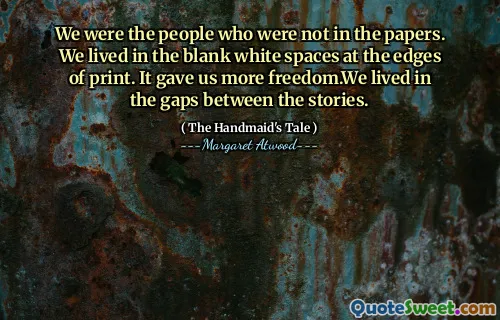Sometimes these flashes of normality come at me from the side, like ambushes. The ordinary, the usual, a reminder, like a kick.
In "The Handmaid's Tale," Margaret Atwood portrays moments of unexpected normalcy that can catch one off guard, serving as jarring reminders of a more familiar past. These instances can feel like ambushes, suddenly interrupting the relentless narrative of a dystopian reality. They evoke emotions akin to a physical shock, stirring memories of what life used to be like before the regime imposed its oppressive order.
Atwood's writing suggests that even in the darkest circumstances, flashes of the ordinary can penetrate the surface of a constrained existence. These moments highlight a deep longing for normality and a connection to a life that once was, emphasizing the stark contrast between the present reality and the past, encouraging readers to reflect on the power and significance of these interruptions in an otherwise bleak setting.
